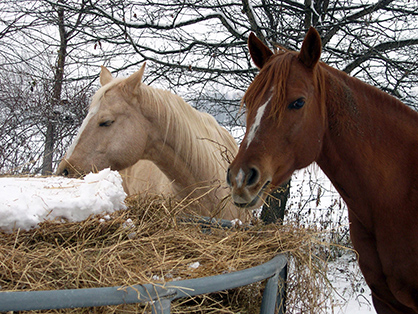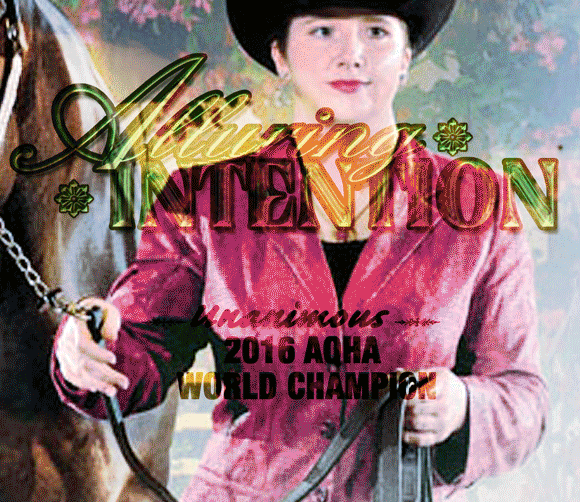When Cold Comes Knocking- Wintertime Horse Management Tips
Old Man Winter arrived in most parts of the U.S. with startling ferocity—near-zero temperatures, exceptional snowfall, and icy gales. Even a bomb cyclone! None of this simplifies horsekeeping, to say the least. Fortunately, horses are hardy and can withstand cold weather easily so long as forage, water, and shelter requirements are met. Continue reading for wintertime horse-management tips from Kentucky Equine Research, the world leader in equine nutrition.
Forage First
Because pastures are no longer growing, hay is usually the forage of choice to satisfy fiber requirements of horses in winter. Billions of beneficial microbes transform forage into energy, some of which is used to keep horses warm during cold spells.
10 Tips for Purchasing Horse Hay
Overweight Horses: How Much Hay Is Too Little?
Old Horses, Cold Weather, and Forage Intake
Nutritional Requirements
Cold-weather feeding strategies extend beyond provision of good-quality hay. Depending on the type of horses you’re feeding, other nutritional considerations should be addressed for top-notch health.
Switching to Hay? Remember Vitamin E
Feeding Horses Electrolytes in Cold Weather
Snow Is No Substitute for Water for Horses
Horse Water Requirements: Five Important Facts
Bran Mashes for Horses: When, Why, and How
Calorie needs rise as temperatures plummet. Maintaining body temperature can be physiologically expensive, so hard keepers will sometimes lose weight in winter. Meanwhile, easy keepers will relish the extra hay provided during cold snaps, maybe at the expense of an expanding girth.
Keep an Eye on Body Condition Through the Winter
Fighting Obesity in Horses: Cold Weather as a Diet Tool
Balancing Warmth and Weight Gain in Easy Keepers
Looking Ahead to Breeding Season
Well-nourished mares and stallions in optimal body condition have greater reproductive efficiency than their thinner peers. Coupled with sound basic nutrition, breeding horses benefit from targeted nutrition.
Antioxidants, Omega-3s Improve Stallion Fertility
Omegas Benefit Broodmares Year-Round
Nourishing Thin Mares for Foaling and Lactation
Feeding Barren and Early-Pregnant, Nonlactating Mares
Seasonal Spotlight reprinted courtesy of Kentucky Equine Research. Read more and subscribe at equinews.com.












